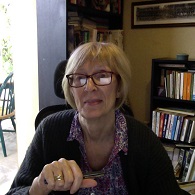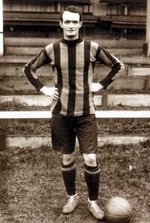-
QUALIFICATIONS
- For Linguists Worldwide
- For UK Public Services
- Preparation
- Policies & Regulation
-
MEMBERSHIP
- Join CIOL
- Membership grades
- NEW for Language Lovers
- Chartered Linguist
- Already a member?
- Professional conduct
- Business & Corporate Partners
-
ASSESSMENTS
- For Second Language Speakers
- English as a Second Language
-
EVENTS & TRAINING
- CPD, Webinars & Training
- CIOL Conference Season 2025
- Events & Networks
- CIOL Mentoring
-
NEWS & VOICES
- News & Voices
- CIOL eNews
- CIOL Awards
- The Linguist
- Jobs & Ads
-
RESOURCES
- For Translators & Interpreters
- For Universities & Students
- Standards & Norms
- CIOL & AI
- All Party Parliamentary Group
- In the UK
- UK Public Services
- Find-a-Linguist
The remarkable life of Patrick O’Connell
By Sue O'Connell

Sue O'Connell MCIL
Spanish to English
After a major multiple sclerosis relapse, I found myself retired. I had to ask myself, what was I going to do with the rest of my life?
I needed something that would keep me busy, but was within the capacity of my ever-decreasing mobility. After a little thought the answer became clear – researching the life of Patrick O'Connell, my husband's grandfather.
Whenever my husband's family got together it was inevitable someone would start talking about Patrick O'Connell. He had been a professional footballer. His career had brought the family to UK from Dublin. The family had stayed but Patrick had left.
As I was to discover through my research Patrick O'Connell had had a remarkable career in professional football. He had abandoned his wife and four children in Manchester and had gone to live and work in Spain. This was in 1922 when Spain was like the far side of the moon and was not a popular holiday destination, 2-3 hours away by plane.
When I started this work I had very limited interest in football. I did however, know enough about the sport to recognise that someone who had been Captain of Ireland, winning 6 caps along the way, had been Captain of Manchester United, had been manager of Betis de Sevilla when the team won La Liga (for the only time to date) and Manager of FC Barcelona was someone worth getting to know.
After living in Madrid for 4 or 5 years I had no difficulty working in Spanish. The language skills I had achieved to become a member of the Chartered Institute of Linguists helped me in my quest. From newspapers to books and interviews my Spanish proved invaluable. These skills gave me the confidence to deal with my first television interview that was both live and in Spanish. (I went into shock later). Patrick O'Connell's life story was a tale just waiting for me. Now I had the time and motivation to access it.
Unfortunately, I didn't have the time or the opportunity to learn Catalan. I did however, read one book in the language as it was not yet available in either Spanish or English. I have to say it wasn't easy to do this and my brain went on strike for a while over the stress I was putting it through as I attempted to read on.
Little by little I re-assembled the professional career of Patrick O'Connell, something that was largely unknown at the time. It took hard work and perseverance because in those far-off days, only a few had access to pcs and broadband was almost completely unheard of. It was a long, hard slog sending faxes and hand-written letters, hoping someone would reply.
I found Patrick O'Connell also had enjoyed an interesting private life. He helped save FC Barcelona from bankruptcy during the Spanish Civil War (1936-1939), he had survived the SCW, had an unusual marital arrangement, met in Seville with one of his sons that he hadn't seen for more than 30 years, was involved in some shady goings-on with regards to match-fixing and died a pauper in London, in 1959.
He helped save FC Barcelona from bankruptcy during the Spanish Civil War (1936-1939), he had survived the SCW, had an unusual marital arrangement, met in Seville with one of his sons that he hadn't seen for more than 30 years, was involved in some shady goings-on with regards to match-fixing and died a pauper in London, in 1959.
A range of short courses at the University of Durham and the University of Liverpool, followed by an MA in Creative Writing at the University of Bolton, helped me develop my writing skills and to my delight, my book was published in July 2016.
Since publication I have been invited to The Daíl (Irish Parliament), have been guest of honour in the VIP box at FC Barcelona and have had a private tour of the Northern Ireland Parliament building at Stormont*.
I've done interviews for radio and television in UK, Ireland, Spain and Australia and my work has provoked a flurry of articles in the sports press as far away as Guatemala, the UAE and Vietnam.
In June 2018 a documentary on the life of Patrick O'Connell (the third documentary made on his life to date) was shown to an invited audience of 150+ at the Sugar Club, Dublin. The following day I gave a talk on Patrick at the EPIC National Museum of Emigration, also in Dublin.
There is now a permanent exhibition dedicated to Patrick O'Connell in the National Museum of Football, in Manchester.
Without my Spanish language skills achieved for the CIOL my research work would have proved impossible.
My work on Patrick O'Connell has given my life a new dimension. Publishing my book on Patrick O'Connell has given me experiences beyond my wildest dreams.
*Patrick O'Connell began his professional career in 1908, in Belfast with the team Belfast Celtic. In the spring of 2017 there was an exhibition at Stormont, dedicated to his life. This has now moved to the National Football Museum, in Manchester.
If you have a story you’d like to share, please email comms@ciol.org.uk
Want to know more about becoming a member? Click here.
The Chartered Institute of Linguists (CIOL), Incorporated by Royal Charter, Registered in England and Wales Number RC 000808 and the IoL Educational Trust (IoLET), trading as CIOL Qualifications, Company limited by Guarantee, Registered in England and Wales Number 04297497 and Registered Charity Number 1090263. CIOL is a not-for-profit organisation.

